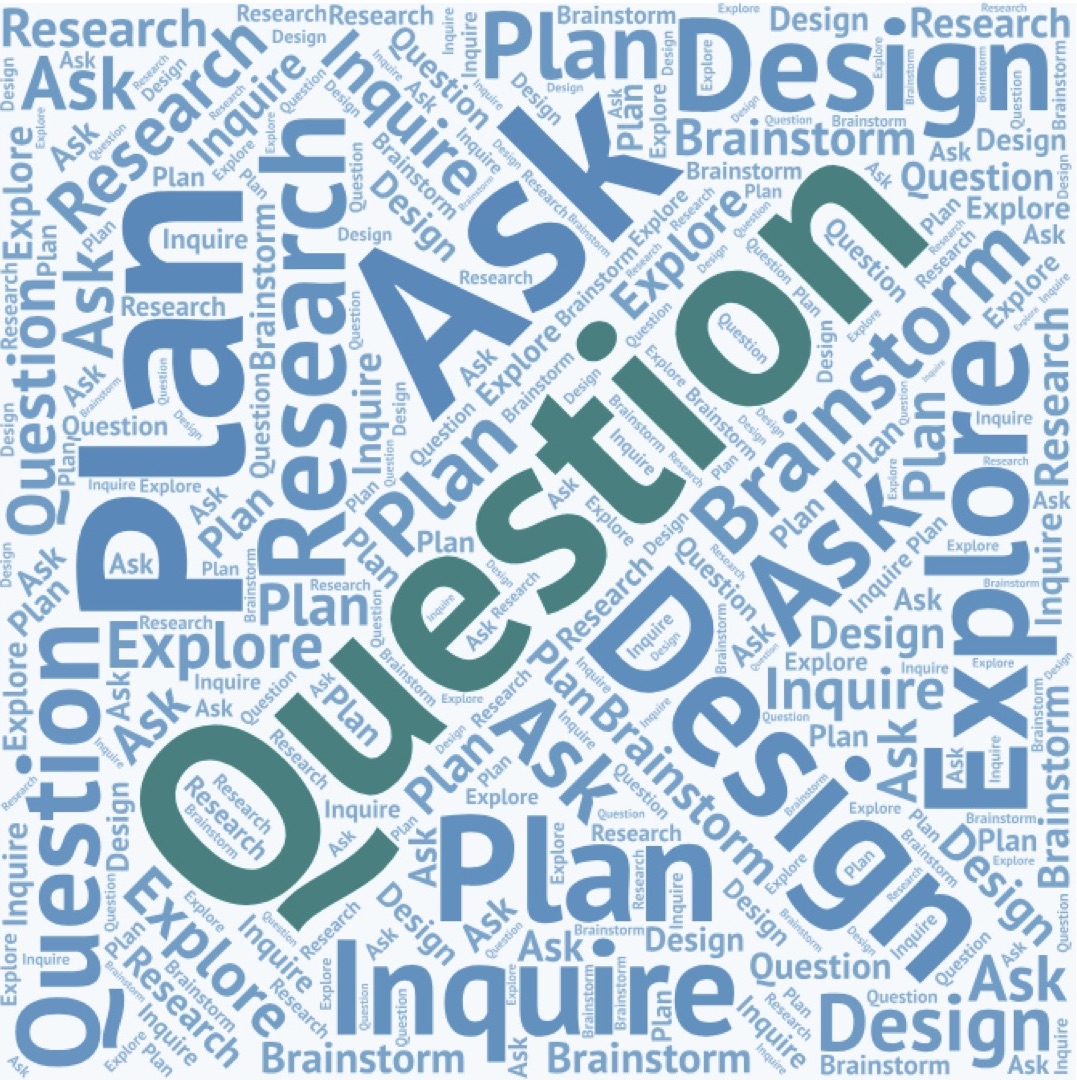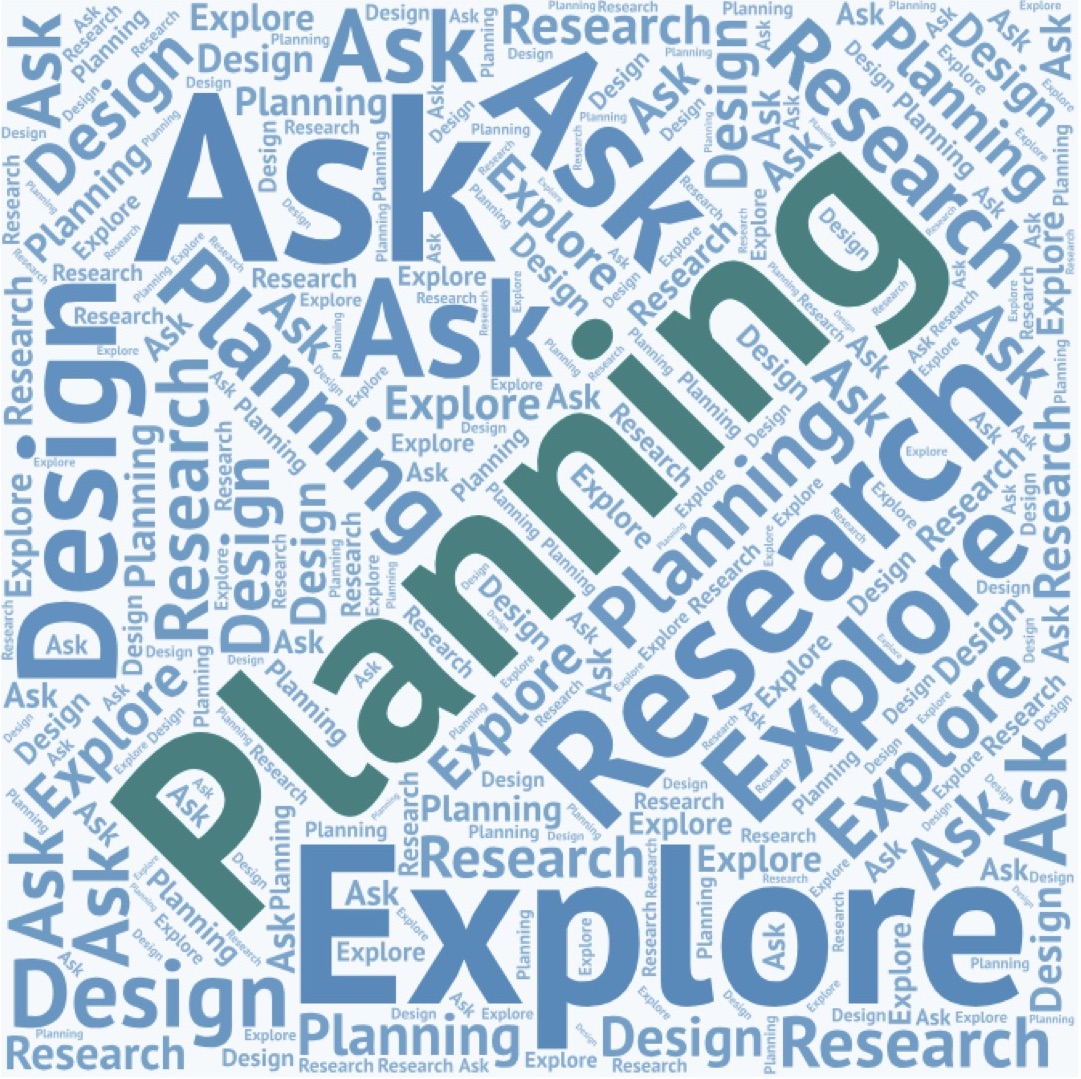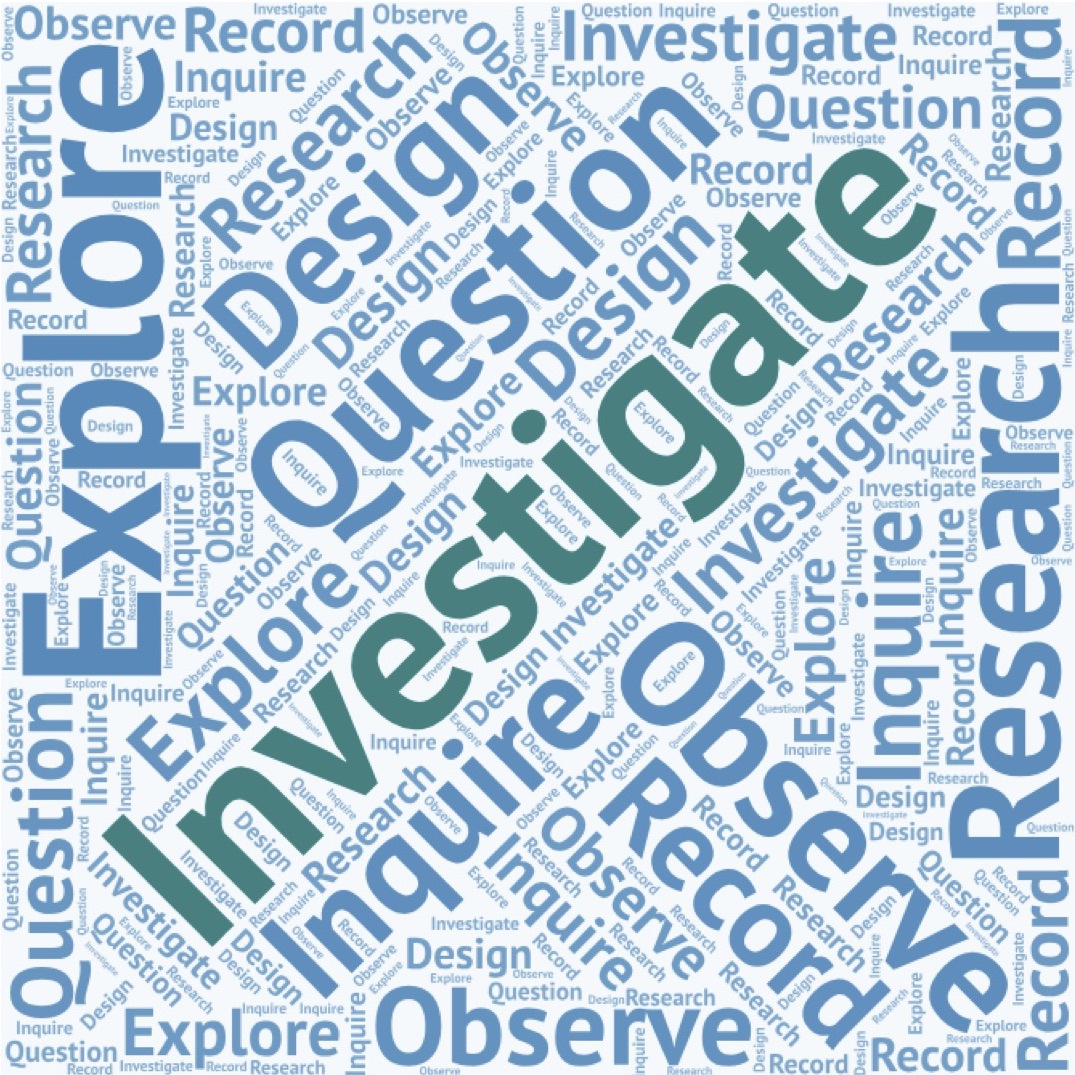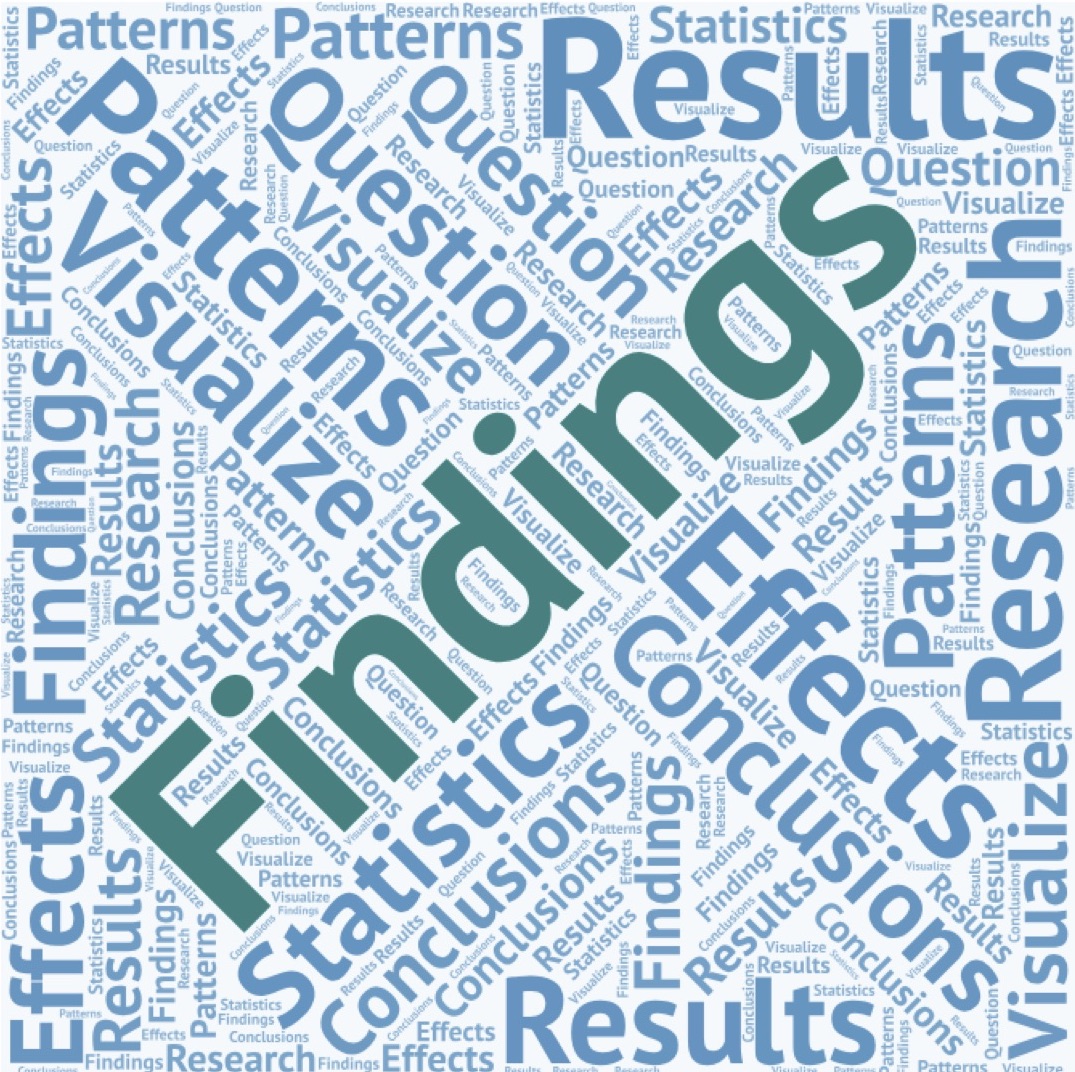Mentor Roadmap - Doing Science
The role of the mentor is to guide students through an investigation - not to provide all the answers. Review the roadmap as you guide students on their investigtive journies!
Explore
To ground a project in biological realities, students first need tangible experiences with the phenomena. Initial engagement sets the stage for what follows in the inquiry cycle. Mentors can:
- Ask students about what they’re doing in class to prepare for their projects.
- Ask students about their science background, and if they have covered certain topics before (but be aware that they may not remember concepts that they were introduced to in the past).
- Ask students about their experiences with plants, outside of school as well as in class. You could ask, for example, “What do you see with plants everyday? How might this relate to your initial observations?”
Research Question
What typically limits students from asking “good” questions is depth of background knowledge and context to connect ideas. Mentors can:
- Begin with big and basic questions that allow students’ ideas to emerge without overwhelming them with terminology and facts.
- Ask students to describe the variables important to their question. This may help reveal that multiple confounding variables are in play.
- Ask students to determine possible outcomes for their investigation and describe what background information or experiences makes them predict these outcomes.
- Encourage students to consider alternative possibilities.
Planning Your Study
Teachers who participate in PlantingScience come from a wide array of schools with varying access to materials, classroom space, and time. Students’ proposals will be limited by one or more of these factors, so it’s important for mentors to keep this in mind when assisting students with their experimental design. Mentor Tips:
- Ask students to describe the materials and timeframe they have available for their investigation.
- Ask students to describe the tools they might use to collect data and how they will set up their data collection sheets.
- Seek a balance between overwhelming students with the complexities of real-world research practices and oversimplifying this for students.
Doing Investigations
While conducting experiments or recording data can sometimes be a humdrum task, it is important to follow protocols carefully to ensure a solid research project. Students do not always understand these ideas intuitively, so it is critical for the mentors to reinforce the importance of following procedures thoroughly. Mentors can help by:
- Encouraging students to remain open to new ideas that might emerge during their investigation.
- Asking students to evaluate any changes to protocols.
- Asking students to describe if they notice changes in their skills collecting data and using the tools of science as their practice with it develops.
Visualizing and Analyzing Data
One of the goals of PlantingScience is to encourage students to improve their reasoning and problem-solving abilities. Here is where you, the mentor, fill a critical role: Mentors encourage students to think critically about the “big picture” of their projects and what their data may mean. Mentors can:
- Help students to set up a data plan before they begin collecting data. Suggest that they track data in an organized way so that they can see patterns in their data as it is collected.
- Try to tailor your expectations to your team. Some students will struggle with organizing data as they have little practice creating structure by choosing meaningful categories to describe the data.
- Provide the students with suggested options for displaying data to encourage discussion rather than a step-by-step guide on how to present their data. The end result might not be as polished, but the learning that comes from making group decisions about how to display data is important.
Making Sense of Findings
Throughout projects, scientists will continually cross-check their ideas, methods, and results as they build their studies. Mentors can encourage students to reflect on their data collection, results, and conclusions. Mentors can ask:
- What were you trying to determine?
- What conditions were you comparing?
- What are the “effects” you are seeing?
- Do your results change your models in any way? If so, describe how, if you can.
- Describe very briefly what you would do next (if you had time) to distinguish between possible explanations or pursue your investigation further.





